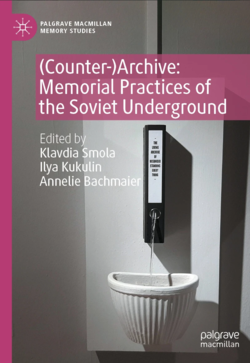Nathalie Moine | Researcher
Biography
A CNRS research fellow since 2001, coming from the Centre d'études russes, caucasiennes, est-européennes, centre-asiatiques (CERCEC) at EHESS, I am a researcher at the Centre Marc Bloch in Berlin since September 2024. A specialist in Soviet history (PhD, Lyon II University , 2000; habilitation, EHESS, 2015), I worked for several years on the war in the East, the Holocaust, and the history of testimony in the Soviet context. The book resulting from this research, Des fosses de Stavropol à Auschwitz. Une enquête soviétique, will be published by PUF in 2025. At the same time, I have been conducting research into the history of the Holocaust and the Occupation in France, attempting to trace through micro-history the complexity of very diverse social milieus in Paris and occupied Eastern France.
More recently, my research project, “Sons d'empire. Histoire du disque et des enregistrements sonores de la fin de l'empire russe à la chute de l'Union soviétique” proposed a series of interconnected case studies of official, informal and clandestine recordings, in search of the actors and conditions of their production, offering a socio-cultural and political history of nationalities throughout the Soviet century inspired by sound studies.
My new research at the Centre Marc Bloch will focus on a socio-environmental history of the Soviet southern belt during the 20th century.
Researchtopic
I wish to direct my research at the Centre Marc Bloch towards a socio-environmental history of the Soviet southern belt in the 20th century, by continuing my current research project: “De la vigne à la lavande, histoire d'une ancienne colonie allemande de Moldavie soviétique“ (”From vines to lavender, history of a former German colony in Soviet Moldavia“), and by conducting the exploratory phase of a future collective project: ‘Voisins à l'ombre du génocide des Arméniens: construire le territoire de l'Arménie soviétique, une histoire des réseaux et infrastructures au Caucase du Sud’ (”Neighbors in the shadow of the Armenian genocide: building the territory of Soviet Armenia, a history of networks and infrastructures in the South Caucasus").
What both projects have in common is an interest in the construction and operation of networked infrastructures, changes in living organisms and landscapes (both rural and industrial), and forms of extractivism in the Soviet context. In both Moldavia and Armenia, they combine a micro-historical approach to territorialized communities with their inclusion in much larger inter-regional and inter-state spaces. They aim to reconstruct the socio-cultural history of working communities seen as crucibles in contexts of strong inter-ethnic tensions and contested borderlands. Covering the entire Soviet XXth century, this history of the concrete implementation of technological innovation intersects with a social history of the political violence specific to the Soviet regime, including deportations and forced labor, which are still little studied in these regions, while unfolding and emphasizing the post-Stalinist decades and the pivotal era of Perestroika.
Sound Archives From the Margins of the Soviet: Recording Gypsy Tales and Songs in the Late Soviet Union
October 05, 2024Nathalie Moine
Edition: . In: Smola, K., Kukulin, I., Bachmaier, A. (eds) (Counter-)Archive: Memorial Practices of the Soviet Underground. Palgrave Macmillan Memory Studies. Palgrave Macmillan
ISBN: 978-3-031-67132-6
The chapter recounts how two Muscovites, writer and poet Efim Druts (1937–2018) and bard Aleksei Gessler (1945–1998), decided to record Romani tales, songs and oral memories in the Brezhnevian USSR, at a time when Gypsy folklore was rediscovered and reintegrated into official culture. Perestroika and the collapse of the Soviet Union made it possible to clarify the sociological context of these sound archives, notably through the use of black literature characteristic of post-Soviet Russia in the 1990s. Druts and Gessler thus belong to the very small circle of specialists in the Gypsy world, which developed on the bangs of the academic world in the Soviet Union and, more broadly, in Eastern Europe, and documented the complex sociological universe of populations forced into sedentarization and constituted as objects of cultural promotion while in reality retaining a specific way of life.
